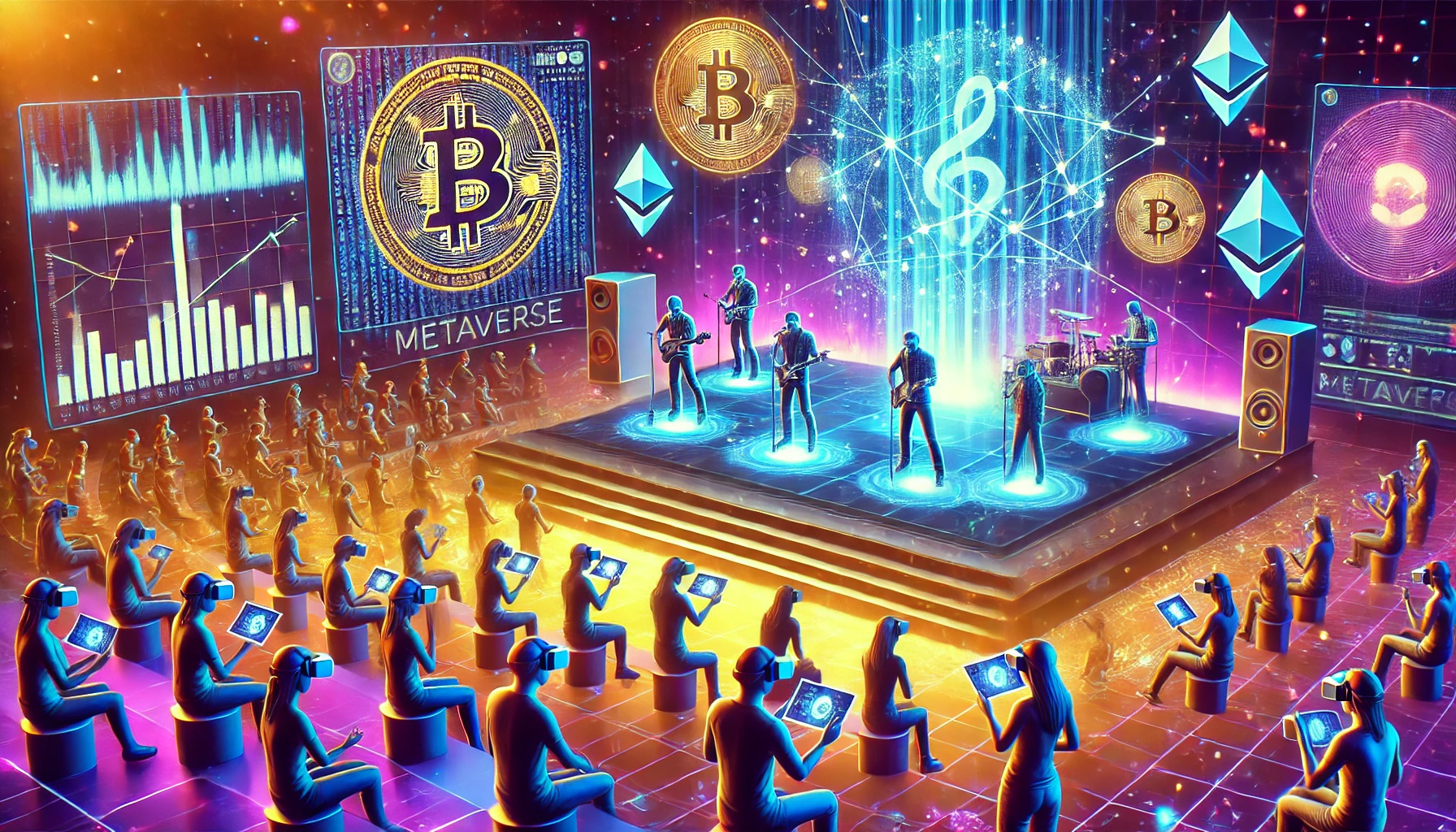
The evolution of technology has consistently transformed how we create, consume, and engage with music and entertainment. From the days of vinyl records and cassette tapes to streaming services and social media platforms, each leap forward has disrupted the status quo. Now, Web3 is poised to be the next frontier in this evolution, promising to democratize creativity, empower artists, and redefine the relationship between creators and their audiences.
But what exactly is Web3, and why is it such a game-changer for music and entertainment?
What Is Web3?
Web3 refers to the next generation of the internet, where decentralization, blockchain technology, and user ownership converge. Unlike Web2, dominated by centralized platforms like Spotify, YouTube, and Netflix, Web3 envisions an ecosystem where users have greater control over their data, digital assets, and interactions. Core technologies such as blockchain, smart contracts, and decentralized autonomous organizations (DAOs) form the backbone of this new paradigm.
In essence, Web3 empowers creators and consumers to interact directly, bypassing traditional intermediaries and gatekeepers. For the music and entertainment industries, this means unparalleled opportunities for innovation, transparency, and equity.
The Impact of Web3 on Music
- Empowering Artists with Ownership
In the Web2 era, artists often lose control of their intellectual property (IP) to record labels, streaming platforms, or other intermediaries. Web3 flips the script by enabling creators to own their work outright. Through non-fungible tokens (NFTs), artists can tokenize their music, artwork, or videos, granting them full control over distribution and monetization.
Example: An artist could mint a song as an NFT, sell it directly to fans, and earn royalties every time the NFT is resold—automatically enforced by smart contracts.
This eliminates the need for traditional distribution models that often see artists earning pennies per stream. Instead, artists receive fair compensation for their creations, fostering financial independence and creative freedom.
- Reimagining Fan Engagement
Web3 enables fans to connect with their favorite artists in unprecedented ways. NFTs and blockchain technology allow fans to own a piece of their favorite artist’s journey, whether it’s a limited-edition album, backstage passes, or exclusive content.
Fan Tokenization: Fans can purchase tokens that provide access to voting rights, input on creative projects, or exclusive experiences. This turns passive listeners into active participants in an artist’s career.
Case Study: Kings of Leon became the first band to release an album as an NFT in 2021, offering unique perks like lifetime concert passes to NFT holders. This move set the stage for a new era of fan-artist interaction.
- Breaking Barriers to Entry
Traditionally, breaking into the music industry required significant capital, connections, or label backing. Web3 levels the playing field by enabling artists to build and sustain careers without relying on traditional gatekeepers. Decentralized platforms like Audius allow artists to upload their music directly to a global audience, retain full rights to their work, and earn revenue instantly.
Decentralized Crowdfunding: Blockchain-based platforms allow fans to invest directly in their favorite artists, funding album production or tours while sharing in the profits.
The Impact of Web3 on Entertainment
- Decentralized Content Creation
Web3 shifts the power dynamics in content creation by enabling decentralized models of production and distribution. Platforms like Decentraland and Sandbox allow creators to design virtual experiences, sell virtual real estate, or produce digital shows entirely owned by them.
For filmmakers, decentralized platforms like Aetheria or Film.io provide opportunities for funding, distribution, and audience engagement without the constraints of traditional Hollywood studios.
- Enhanced Immersive Experiences
Web3 integrates seamlessly with the metaverse, creating immersive entertainment experiences. Imagine attending a virtual concert where you can interact directly with the artist, explore virtual environments, and even purchase digital merchandise as NFTs.
Virtual Concerts: Artists like Travis Scott and Ariana Grande have already ventured into virtual performances, but Web3 takes this further by offering attendees ownership of concert experiences through NFTs. These digital collectibles can serve as tickets, souvenirs, or access passes for future events.
- Protecting Creative Rights
Copyright infringement has plagued the entertainment industry for decades. Blockchain technology offers a solution by recording ownership and distribution rights immutably on the blockchain. This ensures creators are credited and compensated fairly, while piracy becomes significantly more challenging.
Example: Smart contracts can automate royalty payments, ensuring that actors, musicians, or producers receive their fair share instantly whenever their content is used or sold.
Challenges and Opportunities
While the potential of Web3 is enormous, it is not without challenges. Scalability, user adoption, regulatory uncertainty, and the environmental impact of blockchain technology remain hurdles to widespread implementation.
However, these challenges are outweighed by the opportunities Web3 presents:
Democratization: Smaller creators can thrive without needing to rely on centralized platforms.
Transparency: Smart contracts ensure trust and fairness.
Global Reach: Decentralized platforms enable creators to access a global audience instantly.
The Future of Web3 in Music and Entertainment
Web3 is more than just a buzzword—it’s a transformative movement that is reshaping the creative economy. By putting power back into the hands of creators and fans, it paves the way for a fairer, more inclusive, and innovative industry.
As we stand on the brink of this new era, the possibilities are endless. Artists can dream bigger, fans can connect deeper, and the entertainment industry can finally break free from its outdated constraints. The question is no longer if Web3 will revolutionize music and entertainment—it’s how quickly we’ll adapt to this brave new world.
The time to embrace Web3 is now. For artists, fans, and innovators alike, the future is waiting to be built.